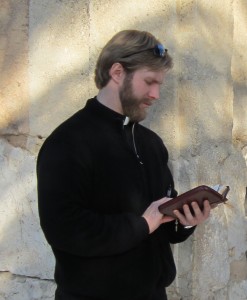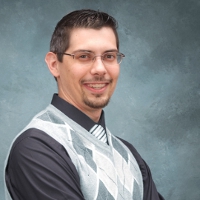How you know me: I am a homeschooling mother of five children, ages 15 years to 10 months old. My husband Joel and I live the country life just outside of Geneseo. We are members of St. John the Baptist parish in Rapids City, where Joel and I teach 2nd-year confirmation class. I am a hairstylist by trade and worked in the salon for eight years before having our fourth child. I come from a family of Carmelites on my mother’s side. I’m the oldest child of Kyle and Paula Hernstrom, and I have lived in the Quad Cities Area my whole life.
Why I love reading: In all honesty, it is a chore for me to read. Unlike my 11-year-old son, who doesn’t know what to do with himself if he doesn’t have a book in hand, I never read outside of what was necessary until I was about 20 years old. Oddly enough, it was reading that brought me back to the Faith. We did not have the Internet for the first few years of our married life, so books became my way to learn more about the Catholic Faith. I started with Sacred Scriptures, chiefly the Gospels. From then on, I have always had a desire to read about the history of our faith and any reading that might aid in spiritual growth. I now enjoy reading now but only if it is spiritually edifying.
What I’m reading now: Outside of the kids’ school history lessons and stories, I do not have much time for reading outside of the Daily Mass Readings, devotionals, articles, and emails.
But now that it is October (the month of my namesake, Teresa of Avila), I have pulled out my copy of Interior Castle
by St. Teresa of Avila, along with Mornings with Saint Thérèse
by Patricia Treece, and Therese’s Story of a Soul.
My favorite book: St. Augustine’s Confessions was one of the first spiritual books that I dove into, and it remains one of my favorites.
I love anything written by C.S. Lewis, G. K. Chesterton, Dietrich (or Alice) Von Hildebrand, our dear St. John Paul II, or the Early Church Fathers. But I’d have to say that the book I’ve read most often and therefore my favorite would have to be The Imitation of Christ by Thomas a Kempis.






















